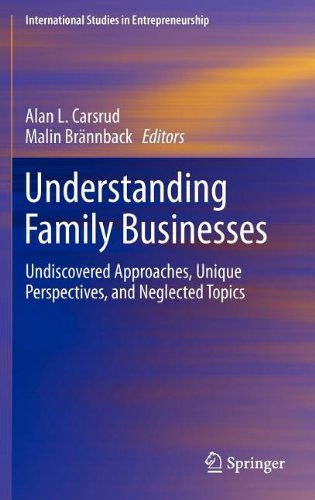

Most ebook files are in PDF format, so you can easily read them using various software such as Foxit Reader or directly on the Google Chrome browser.
Some ebook files are released by publishers in other formats such as .awz, .mobi, .epub, .fb2, etc. You may need to install specific software to read these formats on mobile/PC, such as Calibre.
Please read the tutorial at this link: https://ebookbell.com/faq
We offer FREE conversion to the popular formats you request; however, this may take some time. Therefore, right after payment, please email us, and we will try to provide the service as quickly as possible.
For some exceptional file formats or broken links (if any), please refrain from opening any disputes. Instead, email us first, and we will try to assist within a maximum of 6 hours.
EbookBell Team

0.0
0 reviewsBusinesses owned and operated by families constitute the vast majority of firms around the world. These firms are found in all industrial segments, from retail and service establishments to heavy manufacturers. Their sizes and revenues range from the smallest venture of a husband and wife roadside food stall in rural India to the largest multinational, highly diversified corporations in the United States and Europe. Many challenges, such as competition, regulation, environmental concerns, access to capital, and macroeconomic factors confront family and nonfamily firms alike. In addition, family and closely-held firms grapple with such issues of succession, continuity, conflict resolution, identity and organizational roles, estate and financial planning that are idiosyncratic to them; when psychological, social, and emotional factors are in play, constantly changing familial relationships influence the strategic and financial choices they make. Yet, there has been comparatively little theoretical or empirical research undertaken on family firms, relative to entrepreneurship and strategic management.
This book addresses gaps in the literature by presenting a holistic, multi-disciplinary approach to the study and practice of family business that draws from such fields as psychology, anthropology, sociology, strategy, family therapy, family studies, wealth management, and international business. An international array of experts addresses both macro issues (including the role of family businesses in new business creation and economic development, influences of culture on family business, public policies that can encourage or threaten family business) and firm management (strategic and financial decision making, governance, entering and exiting). Featuring case studies from firms in a variety of industries, Understanding Family Businesses not only offers provocative new insights on family business dynamics, but outlines an agenda for future research.